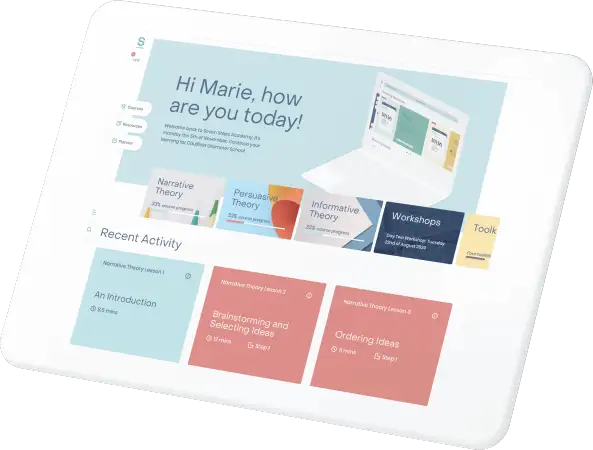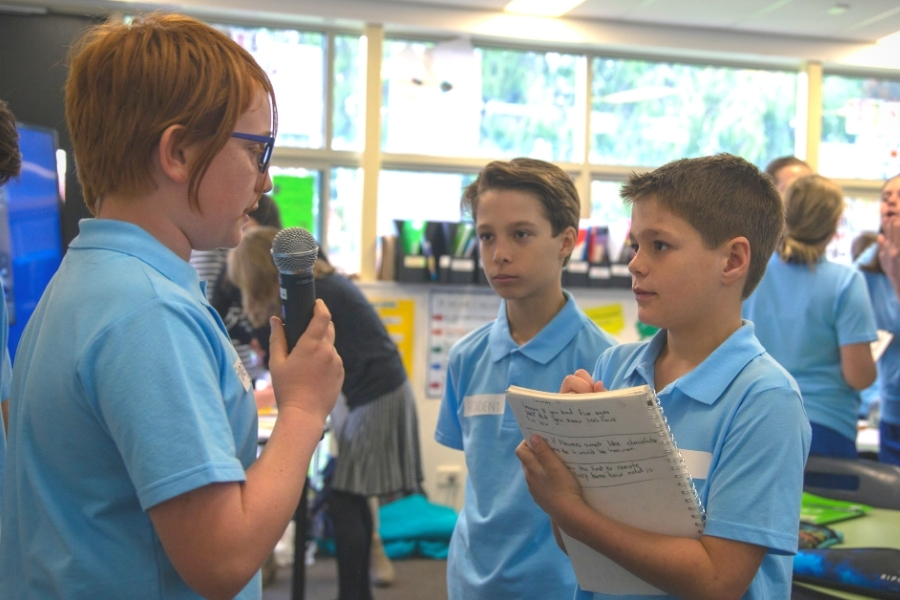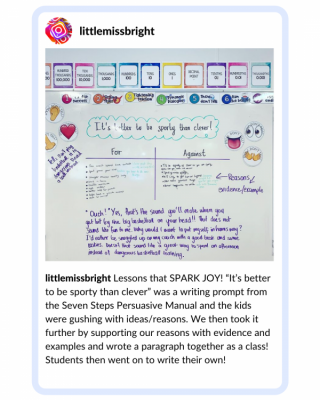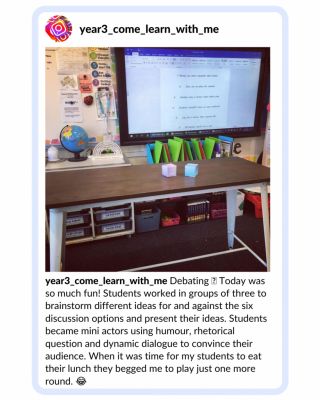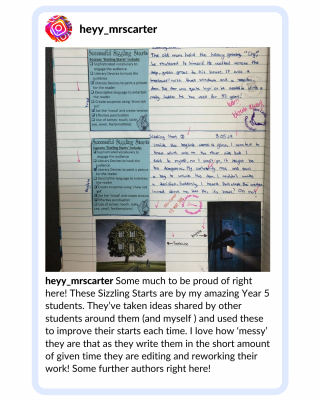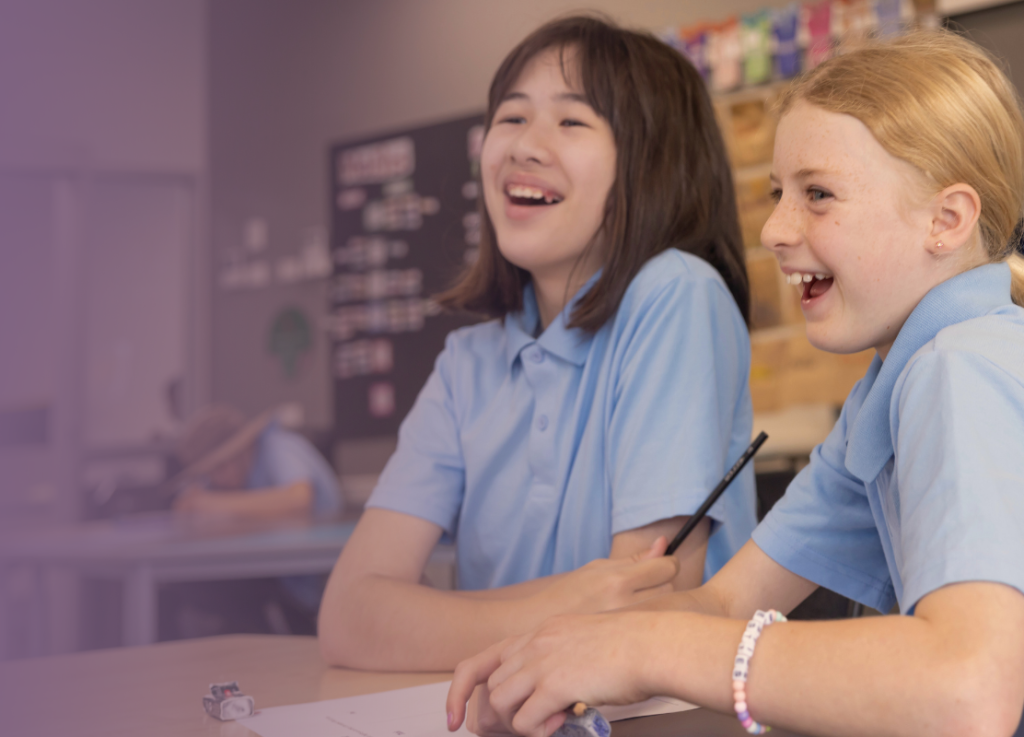Students often struggle when writing becomes a silent, solo task. Coming up with ideas alone is hard, even for adults, and you need so many ideas to create a great piece of writing.
Are your students talking enough in your writing classroom?
Working in groups helps students overcome this issue. By discussing and sharing ideas with peers, students can piggyback on each other’s ideas and generate more original ideas.
Working collaboratively improves student outcomes, enhances verbal skills and empowers students.
Through short, practical, collaborative activities, students feed off each other’s energy to develop better ideas. Engaging students in the writing process with their minds, voices and bodies leads to great writing.
Here are three tips to encourage a collaborative, verbal writing classroom:

1. Role reversal
Keep ‘teacher talk’ to a minimum! Reserve your talk time for short, explicit instructions and then let your students do most of the talking. Give them a wide berth to laugh, make a bit of noise and animatedly discuss their writing ideas.

2. Small groups
Collaboration is most effective in groups no larger than four. It’s best to give each student within the group a different responsibility, so no one is left out or not contributing.
| [Related blog]: Group activity for persuasive writing |

3. Sharing is caring
After any collaborative activity, students need time to share their outcomes with other groups or the class. This is collaboration on a broader scale and helps fuel ideas and feedback.
Students then need time to individually reflect on and apply any learnings from this collaboration into their own writing.
Applying the Seven Steps with Beginner Writers
Talk is a vital scaffold for writing for all students; it’s the first step in literacy. For beginner writers, talking about their story and hearing how it sounds is a great starting point for writing.
It’s also important for students from EAL/D backgrounds and those with learning difficulties.
For teachers trained in the Seven Steps, join our literacy experts in a practical and eye-opening online session! Ideal for Foundation to Year 2 teachers, this session draws on current classroom practice and experience to explore how the Seven Steps can be used with beginner writers.
Find out more >>
| [Related blog]: Collaborate, create and celebrate great writing |
